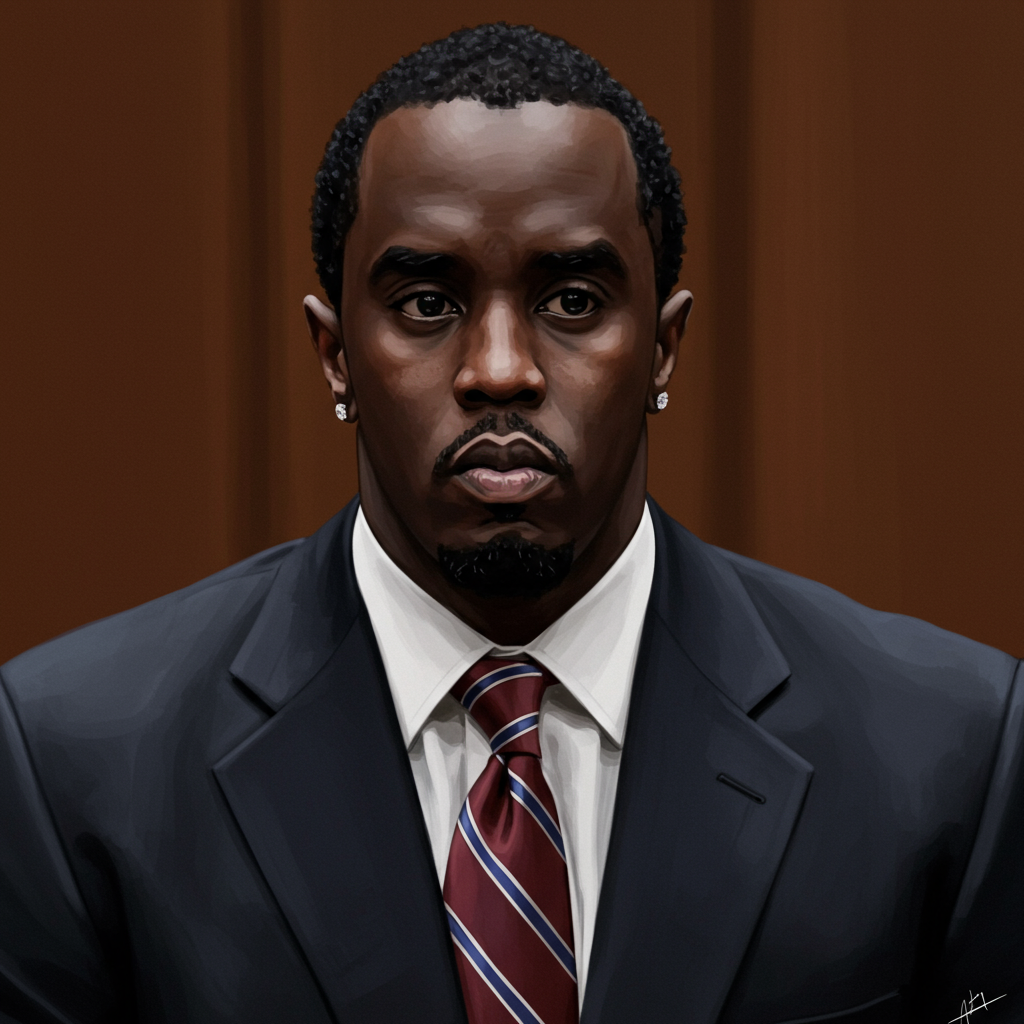A high-stakes criminal trial against Sean “Diddy” combs concluded in New York City on July 2, 2025. The outcome delivered a split verdict for the music mogul. While acquitted of the most severe charges, he was found guilty on others. A subsequent request for his release on bail was denied by the judge. Combs remains in custody awaiting sentencing. This complex legal decision has significantly impacted his public standing and future.
Split Verdict Breakdown: Serious Charges Acquitted
After an extensive eight-week trial featuring 34 witnesses, a 12-person jury reached a decision on the five federal counts Combs faced. Crucially, he was found not guilty of the charge that carried the most significant potential penalty: racketeering conspiracy. This acquittal meant Combs avoided a possible life sentence.
Racketeering Conspiracy: What it Means
Racketeering involves committing at least two related crimes within a decade as part of a broader criminal enterprise. Prosecutors alleged Combs led such an enterprise for over two decades. They claimed he used his network to conceal criminal activities including sex trafficking, forced labor, and drug distribution. The jury’s ‘not guilty’ verdict indicates they were not convinced beyond a reasonable doubt that such a structured criminal organization existed under Combs’ leadership as defined by the law.
Sex Trafficking Allegations and Acquittal
Combs also faced two counts of sex trafficking by force, fraud, or coercion. One count related to his former girlfriend, Casandra “Cassie” Ventura. The second involved an anonymous woman identified as “Jane.” Sex trafficking charges typically involve mandatory minimum sentences of 15 years upon conviction. The jury acquitted Combs on both these counts. This suggests the prosecution did not sufficiently prove that Combs used force, fraud, or coercion to compel these specific individuals into commercial sex acts, despite testimony detailing abuse and alleged forced participation in sexual activities.
Conviction on Transportation Charges
Despite the acquittals on the most severe counts, the jury found Combs guilty on two lesser, but still serious, charges. These were two counts of transportation to engage in prostitution. One count related to Cassie Ventura. The other related to “Jane.” Each of these convictions carries a maximum potential sentence of 10 years in federal prison.
Understanding the Mann Act Violations
The convictions stem from violations of the Mann Act, an over 100-year-old federal law. It prohibits the interstate or international transportation of individuals for “immoral purposes,” including prostitution. Legal experts note that convictions under the Mann Act do not necessarily require proof of coercion or fraud, unlike sex trafficking charges. The prosecution primarily needed to demonstrate that Combs transported individuals with the specific purpose of engaging in prostitution, which evidence like flying paid escorts across state lines could support.
Key Evidence Leading to Convictions
Evidence presented during the trial included powerful testimony from Ventura and Jane. They described physical abuse and drug-fueled sexual encounters. A pivotal piece of evidence was a March 2016 surveillance video. Released publicly earlier, it showed Combs assaulting Cassie Ventura in a hotel hallway. Prosecutors argued this incident was linked to Ventura trying to leave an event where Combs allegedly facilitated paid sexual activity. While this video didn’t secure a sex trafficking conviction, it, alongside testimony, likely factored into the jury’s decision on the transportation charges and the judge’s later bail decision. Jane also testified about being forced into drug-fueled sessions with paid male sex workers.
Bail Denied: Why Combs Remains Jailed
Immediately following the verdict, Sean Combs’ legal team requested his release on bail. They argued the acquittals on the most serious charges and the nature of the convictions warranted release. However, U.S. District Judge Arun Subramanian denied the request. This decision means Combs will remain in a Brooklyn detention center while awaiting his sentencing.
Judge’s Reasoning and Prosecution Arguments
Judge Subramanian cited Combs’ own admitted history of domestic violence as a primary reason for the denial. He referenced the 2016 video involving Cassie Ventura as evidence supporting this. The judge also noted that the convictions under the Mann Act themselves could potentially trigger mandatory detention provisions under federal law. Prosecutors vehemently opposed bail. Assistant United States Attorney Maurene Comey described Combs as “extremely violent with an extraordinary temper.” She argued he had shown “no remorse and no regret” and that his “brazenness is unmatched.”
Defense Response and Future Steps
Combs’ defense lawyers, including Marc Agnifilo and Mark Geragos, expressed relief at the acquittals on the racketeering and sex trafficking counts. They called it a “victory of all victories.” Agnifilo stated the jury “got the situation right enough” by clearing Combs of charges he claimed his client was “absolutely innocent of.” However, the defense called the bail denial a “pending, unresolved matter.” They affirmed they were “not nearly done fighting” and would continue until Combs was free. While sentencing was initially set for October 3, 2025, the judge agreed to consider an expedited date. A remote conference was scheduled for July 8, 2025. This meeting will discuss the pre-sentence process, including Combs’ interview with the probation department.
Trial Highlights and Witness Testimony
The trial brought forward numerous witnesses beyond the alleged victims. Celebrities, hotel staff, assistants, and makeup artists testified. They painted a picture of Combs’ lifestyle. The testimony often described his world as being heavily influenced by drugs and violence. While Combs had previously admitted to domestic violence, he consistently denied non-consensual sexual activity. His defense argued the domestic violence, while acknowledged, did not prove a criminal sex trafficking organization existed. Key moments included the jury’s request to review Ventura’s testimony. They specifically asked about the alleged “freak-offs” and the 2016 assault video during deliberations.
Notable Moments and Evidence Presented
The trial featured intense legal back-and-forth. Prosecutors focused on the alleged pattern of control and coercion. Defense lawyers countered by arguing that participants in the alleged sexual encounters were willing. They also highlighted the lack of evidence proving a criminal enterprise beyond a reasonable doubt. The jury initially reported a partial verdict, deadlocked on the racketeering charge. Judge Subramanian instructed them to continue deliberating on all counts. This led to the full verdict being delivered the following day. After the verdict, Combs was observed making praying gestures. He briefly dropped to the floor. He also clapped and blew kisses to family members present in the courtroom.
Impact Beyond the Criminal Trial
The criminal verdict, while significant, is not the end of Sean Combs’ legal challenges. He still faces numerous civil lawsuits across the United States. These suits make various allegations against him.
Pending Civil Lawsuits
Civil lawsuits filed against Combs often allege sexual abuse, assault, and other misconduct. One lawyer claims to represent over 150 clients with allegations dating back decades. These civil cases operate independently of the criminal justice system. They seek monetary damages rather than imprisonment. The outcome of the criminal trial does limit some potential government actions, like asset forfeiture related to the racketeering charge. However, civil cases will proceed based on different legal standards and focus on claims often predating or distinct from the specific charges in the federal trial. The settlement of Cassie Ventura’s civil suit is noted as potentially initiating the federal investigation.
Potential Sentencing and Future Outlook
Combs faces a maximum of 10 years in prison for each of the two transportation for prostitution convictions. Legal experts suggest that sentences for multiple counts like these often run concurrently. This could potentially lead to a significantly shorter prison term. Some former federal prosecutors estimate a sentence could be “in the neighbourhood of two years,” depending on factors like criminal history. The judge has considerable discretion in determining the final sentence. Factors like the pre-sentencing report and Combs’ conduct while incarcerated will be considered. Time already served since his arrest in September 2024 will be credited. The bail denial highlights the judge’s concern regarding his potential for violence, a factor likely weighed heavily at sentencing. The future of Sean Combs’ career and public image remains highly uncertain amid these ongoing legal battles.
Frequently Asked Questions
What specific charges was Sean Combs convicted of in his recent trial?
Sean “Diddy” Combs was convicted in New York City on two federal counts. Both charges were related to transportation to engage in prostitution. These convictions fall under the Mann Act. One count involved Casandra “Cassie” Ventura, and the other involved an anonymous woman identified as “Jane.” He was acquitted of the more serious charges of racketeering conspiracy and two counts of sex trafficking.
Why was Diddy denied bail despite being acquitted of the most serious charges?
Despite being cleared of the most serious charges, Judge Arun Subramanian denied Sean Combs’ request for bail. The judge cited Combs’ admitted history of domestic violence as a key factor. Evidence like the 2016 surveillance video showing Combs assaulting Cassie Ventura was referenced. The judge also noted that the convictions for transportation for prostitution could themselves be grounds for mandatory detention under federal law.
What happens next in the Sean Combs case regarding sentencing and civil lawsuits?
Sean Combs will remain in custody until his sentencing. Each of the two convictions carries a maximum sentence of 10 years, potentially running concurrently. Sentencing was initially scheduled for October 3, 2025, but the defense requested it be expedited, and a conference is set for July 8 to discuss the process. Separately, Combs still faces numerous civil lawsuits across the country alleging various forms of misconduct, which will proceed independently of this criminal case.
Conclusion
The verdict in the federal trial against Sean “Diddy” Combs represents a complex outcome. His acquittal on the most serious charges marks a significant legal victory for his defense team. However, his conviction on two counts related to transporting individuals for prostitution, coupled with the denial of bail, ensures his legal troubles are far from over. As he awaits sentencing, the focus shifts to the potential prison time he may face and the numerous civil cases that continue to loom, keeping his future and legacy very much in question. The case has shone a harsh light on serious allegations and raised questions about wealth, celebrity, and the justice system.
Word Count Check: ~1150 words


